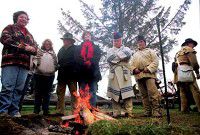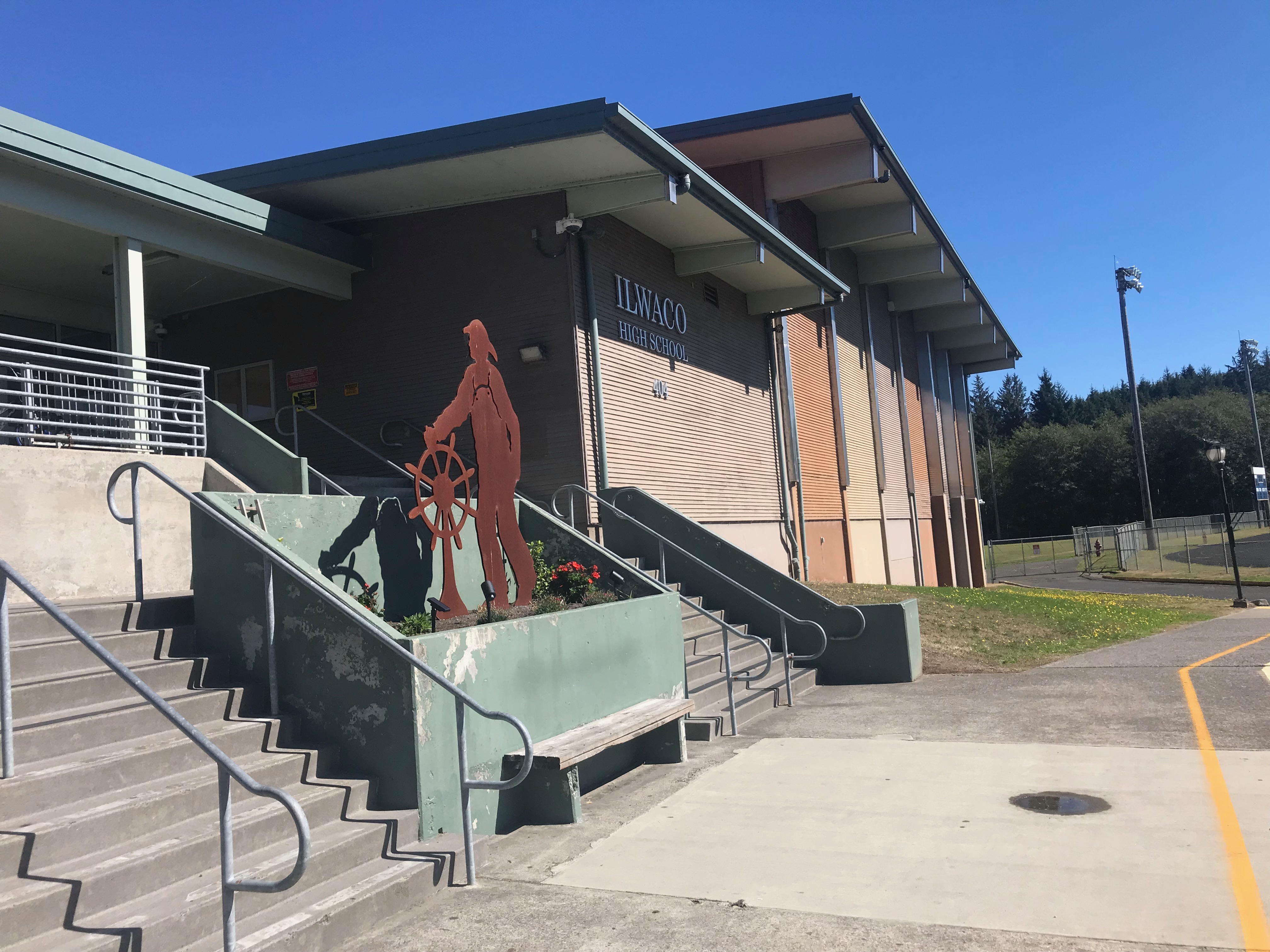Vote ends Lewis and Clark stay in Pacific County
Published 4:00 pm Tuesday, November 29, 2005

- <I>DAMIAN MULINIX photo</I><BR>Reenacters, family and curious people gather around a campfire Thanksgiving morning prior to the Station Camp vote re-creation Thursday.
CHINOOK – Sunday, Nov. 24, 1805, was a fine morning with a bit of frost that greeted the Lewis and Clark Expedition camped on the northern shore of the Columbia River at Station Camp near Chinook. That evening, the commanding officers polled the entire group to see where they wanted to spend the winter. The historic vote included a vote from the lone female in the group, Sacagawea, and William Clark’s slave, York. This is believed to be the first time on American soil that women and blacks were given a vote.
Two hundred years later, between 60 and 80 people gathered in the soaking rain a few miles downriver at Chinook County Park to see members of the Discovery Expedition of St. Charles, Mo., re-enact the vote.
People lingered around the campfires and visited re-enactors at their campsite. Some munched on corn muffins provided by Chinook Indians, others bought books and got autographs.
To begin the ceremony, Ray Gardner, vice chairman of the Chinook Nation tribal council, gave a blessing. As the rain intensified, members of the expedition were invited under a tent for Lewis and Clark to poll them on where they wanted to winter over.
Bryant Boswell, portraying Capt. Meriwether Lewis, told the members they had the option of returning upriver to The Dalles or to try their luck on the south side of the river.
He then asked: “Where will we quarter for the winter?
“As natives tell us, game is more plentiful on the south shore. We can look for a place to winter. The climate could be more severe upriver. As a matter of record, game is scarce in this quarter. We don’t deem this locale to be a viable option.
“We feel possibly the weather will be milder on the other side. Game is very scarce here and natives tell us there are more elk on the other side. We could use them for more meat and more skin for clothing, which we need desperately. We could be close to the ocean where we might obtain salt and possibly a ship might come to shore.”
He then said he wanted the members to have a voice in the decision. Then Clark went down the list to record the vote. The party overwhelmingly decided to cross to the south side of the Columbia. Clark, in his journal, recorded that Sacagawea was “in favour of a place where there is plenty of Potas (roots).” York voted with the majority to cross the river.
Thursday, in Chinook, the people voted the same – the other side of the Columbia looked promising.
And so it was the Corps of Discovery 200 years ago decided to cross the Columbia River and set up a camp that became Fort Clatsop.
Online voteA vote was held on the Internet, which if followed, would change the course of history. On the Web site of Destination: The Pacific, 837 people voted to return upriver and 686 voted to proceed to the south side of the Columbia.
Interpreters’ takesPeyton Clark, great-great-great-grandson of Capt. William Clark, has spent much of his adult life studying and portraying his famous relative. He said polling the entire party was a distinct break from military tradition. “I think that the Corps of Discovery became a family. There was a shared brotherhood by the time they got here that made it more like a closely knit family, above and beyond the well-disciplined military corps.” He said the captains felt everyone should have a voice because they had shared in the hardships to get there.
Jan Falcon, a member of the Chippewa-Cree tribe, portrayed Sacagawea. She said she thought it was “absolutely fantastic” that Lewis and Clark let Sacagawea vote for the first time, especially because it was many years before American Indians were even classified as people.
Portraying York was 1st Lt. Joseph D. Bradford. He said it was a privilege to speak on behalf of the slave York and walk in his footsteps. He said the vote at Station Camp was an example of how York was treated as a man, not as a servant or slave. The vote, he said, showed that Lewis and Clark were fair and just to the people on the expedition.





